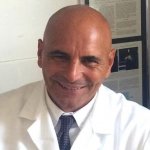
Lab on the tip of the world
Smiths Medical, part of the Smiths Group, has organised and is maintaining one of four main laboratories for Caudwell Xtreme Everest - the biggest human biology study ever performed at high altitude.

Smiths Medical, part of the Smiths Group, has organised and is maintaining one of four main laboratories for Caudwell Xtreme Everest - the biggest human biology study ever performed at high altitude.
According to figures released in 2006 by the International Obesity Task Force (IOTF), around 14 million children, aged 7-11 years, are overweight - and three million of these are obese.

Basic cardiopulmonary resuscitation (CPR), particularly when performed immediately by those witnessing a cardiac or respiratory arrest, definitively saves lives - especially in witnessed cases of ventricular fibrillation (VF) and childhood drowning events. Nevertheless, the frequency of bystander CPR still remains mostly low. In turn, survival chances for potentially salvageable patients remain…

Canada, Italy, Norway, Russia, the United Kingdom, and the Bill & Melinda Gates Foundation today committed US$1.5 billion to launch a pilot Advance Market Commitment (AMC) to help speed the development and availability of a new vaccine which is expected to save the lives of 5.4 million children by 2030. The new initiative will target pneumococcal disease, a major cause of pneumonia and meningitis…
Apparently, 20 children are diagnosed each day in the UK with alcohol poisoning.

Emergency care doctors can now use just one stethoscope to tend either paediatric or adult patients.
The five Bulgarian nurses and a Palestinian doctor, accused of intentional mass HIV infection, face their final court sitting on 31 October. A verdict is expected soon afterwards.

The EHFG has developed into the leading health policy platform in the EU since its beginnings in 1998, attracting close to 600 high-level participants annually.

Freezing abnormal electrical pathways in the hearts of young patients may be a safer alternative to zapping them with powerful radiofrequency probes to treat tachycardias and other arrhythmias, according to Dr Fabrizio Drago, of the Bambino Gesù Hospital, Rome. ‘If you have a child with a supraventricular tachycardia due to a re-entry circuit, or a target very close to the atrioventricular…

Interview with Prof. Klaus Vetter MD, director of the Obestetrics Clinic at the Perinatal Centre, Vivantes Hospital Neukölln, Berlin, Germany.

Healthcare authorities have advised university hospitals to slowdown surgical training, because, after years of study, qualified Dutch surgeons can find no employment.

The use of unlicensed and off-label medicines for children is widespread, yet over 50% of all pharmaceutical products have no scientific data for young people. With its Regulation on Medicinal Products for Paediatric Use the EU aims to promote the development of more medicines specifically for children.
About 25,000 German children are diabetic, and numbers are increasing rapidly. Specialists in childhood diabetes gathered at a meeting held by the Dianino Foundation during the 41st Annual Meeting of German Diabetes Society (DDG), to discuss `Diabetes-Nanni´, a programme in which female diabetes advisers receive additional psychology training to care for diabetes-affected families in their homes.…

Across Europe there are different answers to the question of who should manage intensive care. In Germany the issue is linked to a discussion on which medical field could claim surgical intensive care for itself.

The Philips Kitten Scan is a miniature CT (or CAT) scanner for children - no, not to be scanned in it, but for them to use while awaiting checkups themselves.
The Netherlands - Although this country became the first, in 2002, to legalise euthanasia for people aged 16 years and over, child euthanasia remains illegal.

Russia - Leonid Roshal, 71, paediatrician and head of the Moscow Scientific Research Institute for Emergency Children's Surgery and Traumatology, has received the Reader's Digest European of the Year Award 2005 for his tireless and dedicated work helping children who have been injured in disasters and conflicts around the world.
Germany - The Federal Associations of Health Insurance Funds and the German Hospitals Association are now following Germany's Regulation 1 on the co-admission of child/adolescent patients and accompanying adults.
UK - A large number international and renowned experts are set to converge on London's Westminster Hall to examine environmental and other factors affecting the incidence of leukaemia and other childhood cancers, as well as their mechanisms of action and interaction across a range of scientific disciplines.
An extensive international study, presented at the American Society for Microbiology meeting in New Orleans, concludes that baby foods contain worrying levels of disease-causing microbes, including Enterobacter sakazakii (linked to some fatal outbreaks of meningitis at children's hospitals in Europe and the USA*).

Germany - 0.7% of newborn babies need surgery for congenital heart defects (CHD) - i.e. around 5,000-6,000 children in every 700,000 born.

Despite advances in magnetic resonance imaging (MRI) that have revolutionised diagnostic possibilities, e.g. for functional imaging (fMRI), motion artifacts are still extremely detrimental in multi-slice 3D sequences, often used in fMRI or with uncooperative patients (children, elderly, accidents, stroke...).

The diagnosis of kidney and urinary tract problems can be particularly difficult when young patients are involved.

Since November last year, the Pen Tablet PC 3500, with MagicWeb/ Acom.web image distribution software, was field tested there by Dr Martin Herbst,